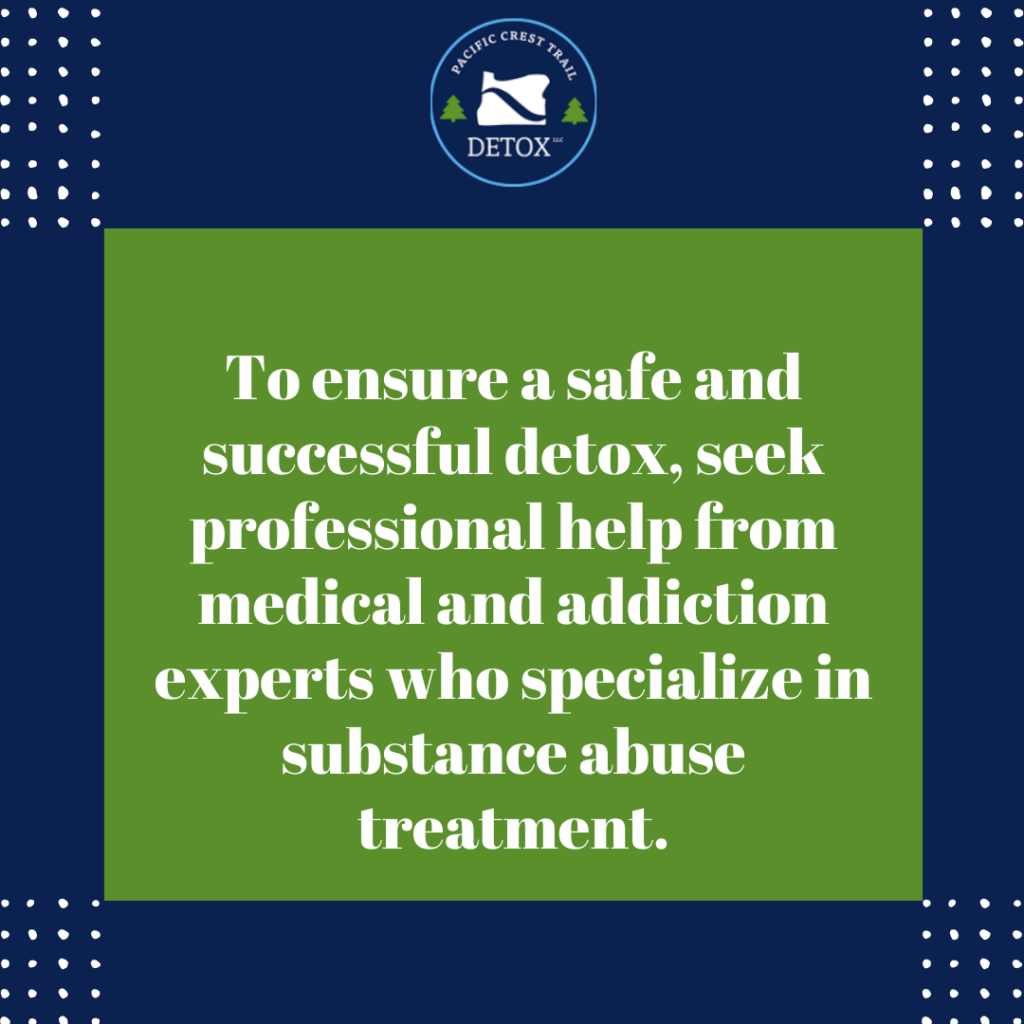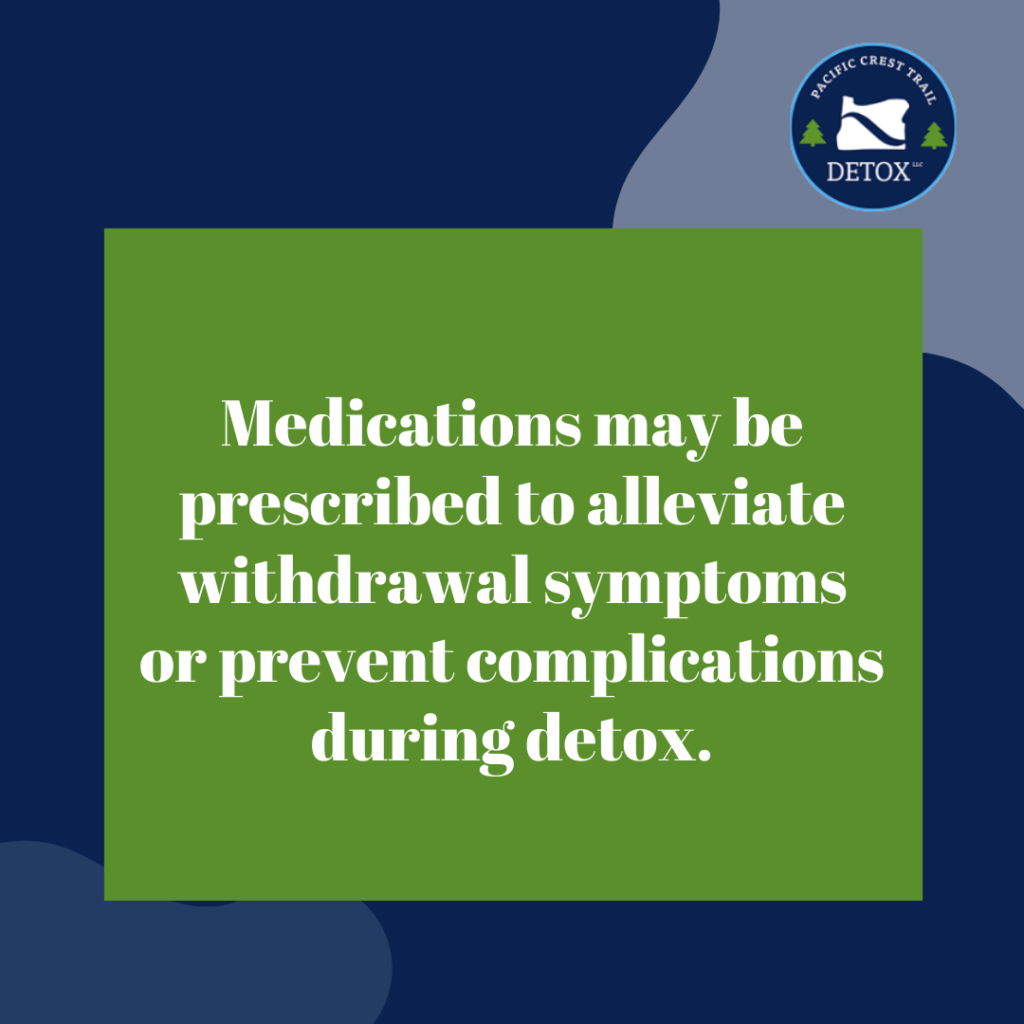Drug detox enables the body to rid itself of hazardous substances, control withdrawal symptoms, and get patients geared up for intensive addiction treatment. To ensure that you’ll have a smooth experience, you need to prepare for drug detox thoroughly.
By following the right steps and addressing your specific needs, you can optimize the benefits of drug detox and set yourself up for successful recovery.

Understanding Drug Detox
Drug detox is the process of eliminating harmful toxins accumulated from drug use. This crucial stage of treatment plays a vital role in managing withdrawal symptoms and preparing individuals for further care.
One particular substance that requires special attention during detoxification is crystal meth. Detoxing from this stimulant drug can be challenging and intense due to its addictive nature.
To ensure a safe and successful detox, it’s ideal to seek professional help from medical and addiction experts.
How to Prepare For Detox Mentally
Understanding the process, managing expectations, and developing a positive mindset towards change can help you get ready for detox.
Set Clear Intentions
Clearly outline your goals and the reasons behind the detox. Having a specific objective might help keep you motivated when things get tough.
Educate Yourself
Recognize potential withdrawal symptoms, the detox process, and the anticipated difficulties. Anxiety and uncertainty might be alleviated by knowing what to expect.
Positive Affirmations
Create affirmations that emphasize your dedication to detox and recovery.
Set Realistic Expectations
Detox is a difficult procedure. Be reasonable in your expectations and accept that there can be challenging times.
Focus on the Future
Turn your attention to the advantages of detoxification and rehabilitation. Think about the chances and positive improvements that lie ahead of you once you get past this difficult stage.

How to Physically Prepare for Detox
Physical preparation involves ensuring proper nutrition, hydration, and medical support to manage withdrawal symptoms effectively.
The physical symptoms you’ll experience from detox differ based on the substance and personal circumstances. Typical signs and symptoms include tremors, muscle pains, sweating, nausea, and insomnia.
Medical Supervision
Seek expert healthcare advice to treat severe symptoms and side effects.
Hydration and Nutrition
To help your body during detox, drink plenty of water and eat a well-rounded diet rich in vitamins and minerals.
Exercise and Rest
Make sure you get enough sleep, and if you can, try to get some mild exercise in to help with circulation and reduce tense muscles.
Arranging Your Support System
Emotional readiness constitutes building a loving and encouraging support system, acknowledging emotions, and developing healthy coping strategies, all contributing to a more resilient and successful detox experience.
The emotional challenges of detox can be overwhelming, which is why having a strong support system is essential. Whether it’s friends, family, or a support group, having understanding and encouraging individuals around you can make a significant difference. They provide a sense of connection and reduce feelings of isolation, making the detox process more bearable.
During detox, the risk of relapse is high. However, with a solid support system in place, you can create a protective environment that minimizes triggers and temptations that could lead you back to substance use.
Knowing that you have a network of people cheering for your success boosts your confidence and self-esteem, both of which are crucial elements in your recovery journey.
Surround yourself with individuals who understand your goals and are willing to support you in maintaining sobriety. By doing so, you increase your chances of long-term success in recovery.
Understanding and Managing Withdrawal Symptoms
Withdrawal symptoms can vary widely in intensity and may pose risks. Acute withdrawal symptoms from drugs and alcohol include the following:
- Hyperactivity
- Fever or chills
- Nausea and diarrhea
- Increased heart rate and blood pressure
- Hallucinations
- Restlessness
- Decreased muscular control
- Loss of appetite
- Frequent agitation and aggressive behavior
- Disorientation and dizziness
Medical supervision ensures immediate intervention if complications arise, enhancing overall safety.
In certain cases, medications may be prescribed to alleviate withdrawal symptoms or prevent complications. Medical supervision ensures proper dosages and adjustments based on individual responses.
Medical experts can also help create an aftercare strategy that is necessary to facilitate a seamless transition from detox to continued care and support for long-term recovery.

After Detox: Planning for Long-Term Recovery
It’s critical to carry out a number of actions after detox to guarantee ongoing recovery and lower the chance of relapse.
Engage in Ongoing Treatment
Continue with a comprehensive treatment plan that may include counseling, therapy, or support group participation. Explore different therapeutic modalities that address the underlying causes of addiction.
Create a Support System
Maintain and strengthen your support network of friends, family, and recovery peers. Attend support group meetings regularly for ongoing encouragement and connection.
Develop Healthy Habits
To support overall health, establish an agenda that includes frequent exercise, a healthy diet, and enough sleep. Take part in happy and fulfilling activities to reduce the likelihood of resorting to drugs as a coping mechanism.
Stay Vigilant
Understand that recovery is an ongoing process, and staying vigilant against complacency is crucial. Regularly assess and adjust your strategies as needed.
Consider Aftercare Programs
Aftercare programs provide continuous support, helping individuals reintegrate into society and navigate the complexities of daily life without turning to substances.
- Group Therapy: Attend group therapy sessions to interact with people going through similar struggles, exchange experiences, and get feedback.
- 12-Step Program: Devote time to meetings of groups like Narcotics Anonymous (NA) or Alcoholics Anonymous (AA), which offer a framework for continued recovery and an organized support system.
- Intensive Outpatient Programs (IOP): IOPs provide a more comprehensive degree of care than typical outpatient programs, enabling patients to remain in their homes while receiving structured treatment.
- Therapeutic Communities: Consider long-term residential programs or therapeutic communities that offer extended support, structured living, and ongoing therapy.
Conclusion
Preparing mentally, physically, and emotionally for drug detox is crucial for a smoother recovery journey. Nevertheless, a successful detox preparation calls for personal commitment as well as medical oversight.
Medical supervision is essential during detox to provide a safe and supportive environment, manage withdrawal symptoms effectively, and address the individual’s unique health needs. It contributes significantly to the overall success of the detoxification process.
At Pacific Crest Trail Detox, we are your partners in the quest for a bright future. Come along and witness firsthand the marvels that a sober life has to offer.

